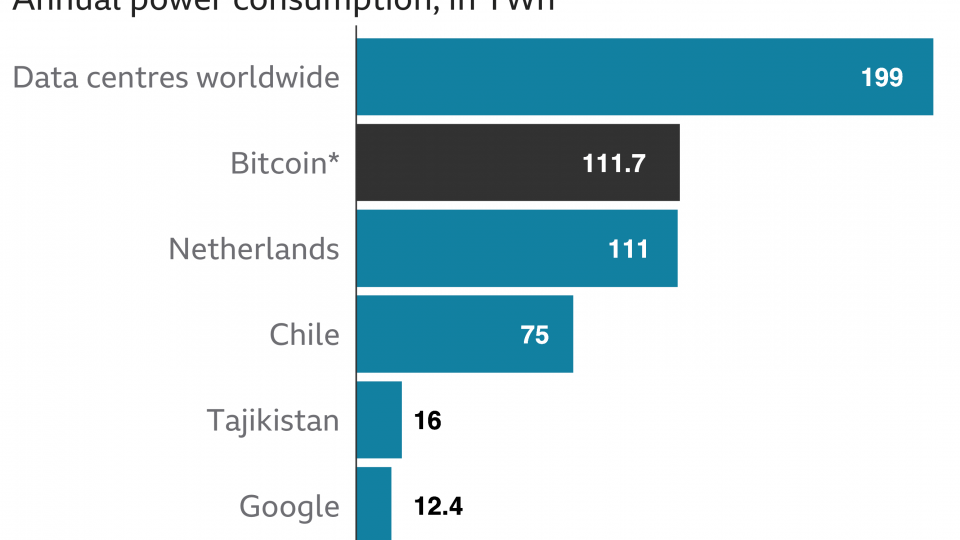Bitcoin is now the most popular option among those interested in investing in cryptocurrency. Even though its price per coin was only worth a dollar back in 2011, its value has now shot up dramatically, with more people only being able to buy a fraction of the previously cheap coins.
Bitcoin is produced through a process called Bitcoin Mining. This is an extremely energy-intensive process and uses up huge amounts of electricity daily. In turn, this has made Bitcoin into something of an environmental issue.
What exactly makes Bitcoin dangerous for our environment? Is there a way to make Bitcoin more eco-friendly?
A look into the mining process
Part of crypto-mining’s charm is that the miners can earn ludicrous amounts of money for each block they mine. Currently, each Bitcoin block that is mined has a coin reward of 6.25 BTC. This amount drops by half roughly every four years. Because of the ridiculously high prices, many are happy to put huge amounts of time and energy into mining Bitcoin.
One only needs to have the proper specialized hardware requirements to start mining Bitcoin. At present, there are even people who mine Bitcoin on their own on a full-time basis. The caveat, however, is that mining Bitcoin is a considerable financial investment.
The specialised hardware that is used to mine for Bitcoin is costly and can easily go upwards of $10,000. This is the reason why mining is predominantly carried out at giant Bitcoin mines: because most people cannot afford to purchase the needed hardware. These Bitcoin mines are on a much larger scale compared to what individual miners can do.
Environmental consequences
The total amount of power needed to run the entire Bitcoin network can surpass the energy usage of some major countries, consuming over 120TWh per year. And even though each coin has great value, many people are now questioning whether the financial pay-off is worth the environmental consequences.
Climate change activists are now protesting against Bitcoin and its huge energy outputs. Predictably, those who own Bitcoin mining companies and those who advocate for Bitcoin are coming to the cryptocurrency’s defence.
Cryptocurrency exchange company Kraken’s CEO Jesse Powell states that “using Bitcoin has a cost, but so do lots of nice things,” citing the widespread use of the internet as an example.
He believes that despite the environmental consequences that Bitcoin has, mining and using it is a “peaceful way to protest” against governments that damage national economies through corruption. There is also a faction of miners that believe that Bitcoin mining isn’t as environmentally damaging as the press and news around it would have us believe.
The thing is, they might not be wrong.
Cambridge University conducted a study in 2020 and reported that 61% of the energy used for Bitcoin mining in North America was taken from entirely renewable hydroelectric sources. This raises the argument that it’s not the source of energy but the sheer amount required for mining that is the problem.
Bitcoin is seen by many as the future of money because it is not regulated or owned by any government. However, the benefits of Bitcoin does not outweigh its severe effects on the environment. This has prompted Bitcoin companies to put research into other ways to mine Bitcoin in a more eco-friendly process, including looking into establishing mining sites in countries with more access to renewable energy.
Finding the balance between Bitcoin and the environment
To reduce the carbon footprint, Bitcoin miners are now active in Iceland and Norway, two countries predominantly reliant on renewable energy sources.
It has been proposed that Bitcoin mines can be congregated around the renewable energy resource hubs in these countries. Theoretically, this would make mining far more reliant on eco-friendly sources of fuel. This is just an idea, though, and there are still several questions about the topic.
There are talks about imposing a tax levy on the electricity usage of Bitcoin mines in some countries to prevent excessive use of energy. It is also possible for taxes to be imposed on companies that manufacture the hardware required to mine Bitcoin.
While other cryptocurrencies are said to be more environmentally friendly, like Cardano, many of these cryptocurrencies aren’t as valuable as Bitcoin.
Currently, Bitcoin remains one of the most sought after forms of cryptocurrency, enticing investors from around the world with the huge value of each coin.
Bitcoin’s Future
At the moment, there are no prevailing solutions for the environmental consequences of mining Bitcoin, but there is also no sign of Bitcoin losing its worth any time soon.
Due to Bitcoin’s massive (and still increasing) popularity, it is necessary for the industry’s big players to continue developing more eco-friendly methods for mining so that cryptocurrency can exist without detrimental effects on the planet.
The post Bitcoin and Its Environmental Impact appeared first on Ripple Coin News.
Go to Source
Author: Guest Author


